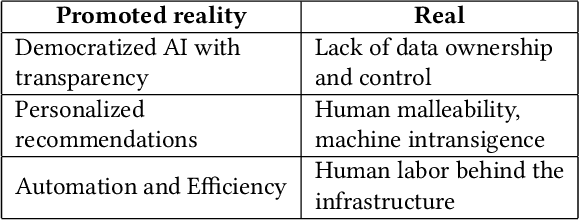Reconfiguring Participatory Design to Resist AI Realism
Paper and Code
Jun 05, 2024
The growing trend of artificial intelligence (AI) as a solution to social and technical problems reinforces AI Realism -- the belief that AI is an inevitable and natural order. In response, this paper argues that participatory design (PD), with its focus on democratic values and processes, can play a role in questioning and resisting AI Realism. I examine three concerning aspects of AI Realism: the facade of democratization that lacks true empowerment, demands for human adaptability in contrast to AI systems' inflexibility, and the obfuscation of essential human labor enabling the AI system. I propose resisting AI Realism by reconfiguring PD to continue engaging with value-centered visions, increasing its exploration of non-AI alternatives, and making the essential human labor underpinning AI systems visible. I position PD as a means to generate friction against AI Realism and open space for alternative futures centered on human needs and values.
 Add to Chrome
Add to Chrome Add to Firefox
Add to Firefox Add to Edge
Add to Edge